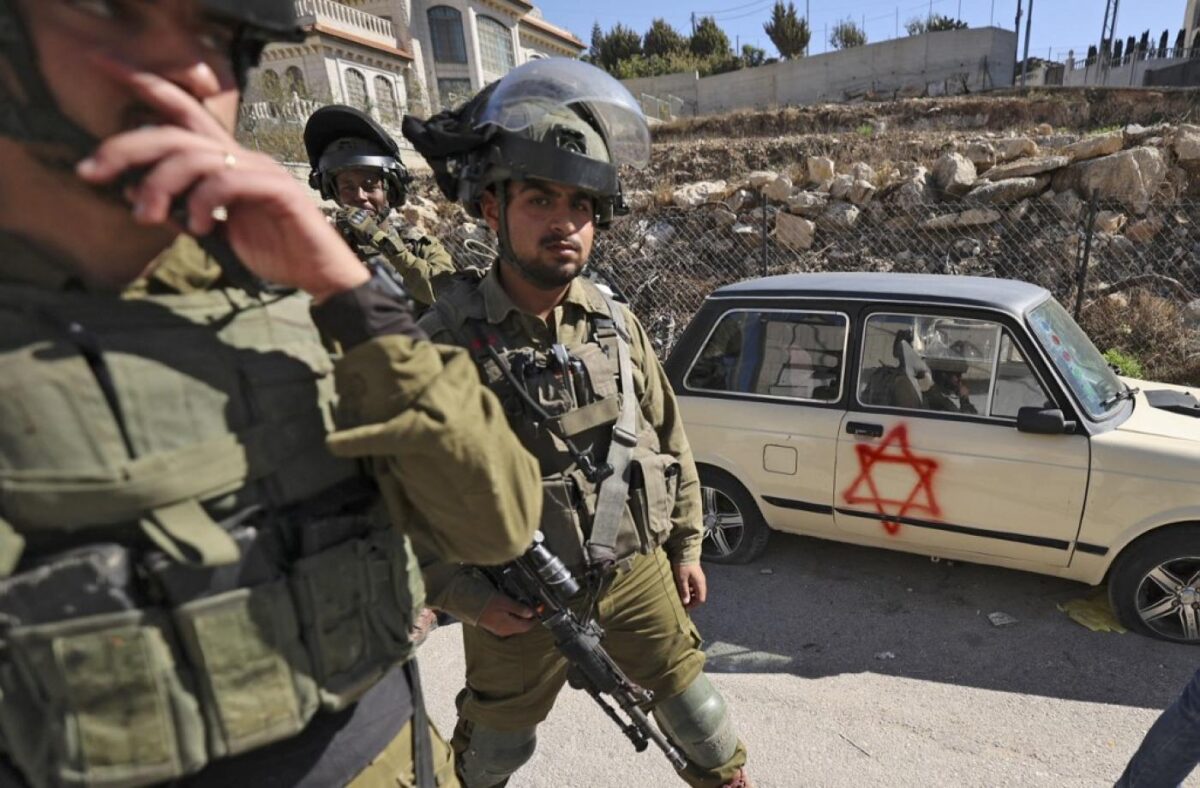In a report published on Sunday, B’Tselem said in 66 percent of the incidents when settlers in the occupied West Bank attacked Palestinians, Israeli forces did not go to the scene.
In 170 of the cases where the army did arrive, troops either chose not to intervene to protect the Palestinians or actively joined the attack.
In just 13 cases, Israeli forces took action to “prevent the settler violence”, according to B’Tselem.
“Settler attacks against Palestinians are a strategy employed by the Israeli apartheid regime, which seeks to advance and complete its misappropriation of more and more Palestinian land,” the rights group announced in its report.
“When the violence occurs with permission and assistance from the Israeli authorities and under its auspices, it is state violence. The settlers are not defying the state; they are doing its bidding,” it added.
Israel, which has occupied the West Bank since 1967, rejects claims that its treatment of the Palestinians amounts to apartheid.
There was no immediate comment by Israel’s security forces on B’Tselem’s findings.
Recent months have seen a steep rise in violence committed by settlers in the West Bank against Palestinians, including against farmers harvesting their olive trees.
“It is evident that there is an increase in the attacks,” Ghassan Daghlas, who monitors settler violence in the northern West Bank, told Al Jazeera last month, describing the violence as “planned and not spontaneous”.
Last week, a group of settlers vandalised many cars in a town near Ramallah, and in September, dozens of settlers attacked a Bedouin village in the southern West Bank, leaving several injured, including a Palestinian toddler.
B’Tselem spokesman Dror Sadot noted the group did not contact security forces for comment on the report because “we understood they do nothing about our accusations”.
The group highlighted five examples in different parts of the West Bank that saw violent settlers take over more than 2,800 hectares (6,919 acres) of land.
It cited the case of Ma’on Farm, erected illegally in the southern West Bank but which together with a sub-outpost now controls some 264 hectares (652 acres), including roads and pasture used by the area’s Palestinian residents.
Shepherd Jummah Ribii, 48, of the Palestinian community of Al-Tuwani, told B’Tselem that assaults by settlers were pushing him away from farming that had sustained his family.
He said settlers attacked him severely in 2018. “They broke my leg, and I had to spend two weeks in hospital and continue treatment at home,” B’Tselem quoted him as saying.
“I had to sell most of our sheep to cover the cost of treatment,” he added.
Farmer Zuhdi Hassan told Al Jazeera he was facing trouble this season largely due to settler attacks, movement restrictions and poor rainfall.
“Normally, I produce about 20 large plastic containers of olive oil, but this year I will only produce about six to seven containers,” said the 57-year-old, adding, “I think next year’s harvest will also be poor because of the settlers and their continued destruction of our trees.”
Hundreds of thousands of Israelis have moved to West Bank settlements that are regarded illegal under international law.
Some settler outposts, including the Ma’on Farm, are also illegal under Israeli law. However, the government has been slow or unwilling to evacuate them.
